Chester Zoo welcomes arrival of rare penguin chicks
- Published
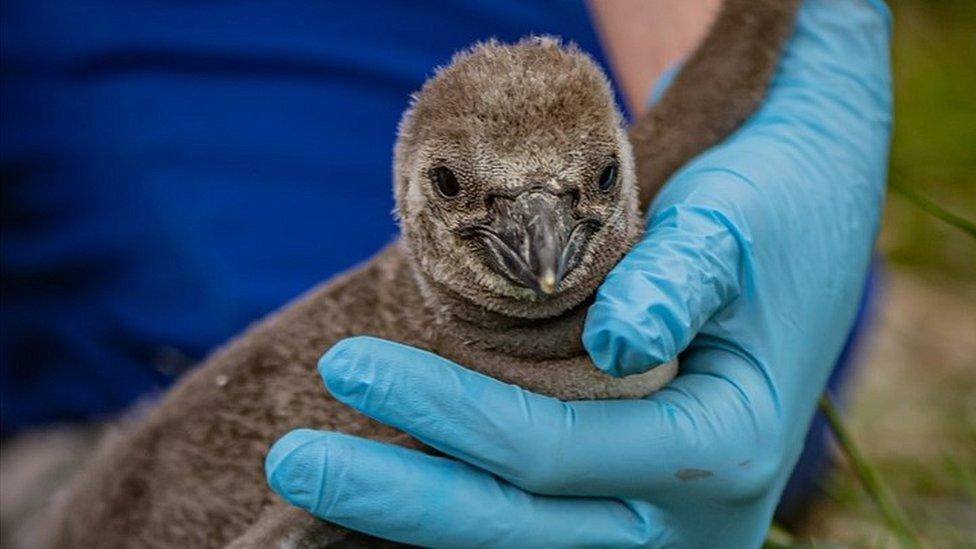
The newly-hatched Humboldt penguins have started swimming in the zoo's pool
Penguin Island at Chester Zoo is "buzzing with activity" after welcoming the arrival of nine endangered Humboldt penguin chicks.
Humboldts are typically found on the rocky shores of Peru and Chile and they are at risk of extinction due to climate change and overfishing.
Keepers have named most of the baby birds after their favourite fruits.
Iona-Berry was named after a vet who last year saved the eyesight of the penguins' father, Munch, last year.
Humboldts have been listed as vulnerable to extinction by the International Union for the Conservation of Nature.
Of the world's 18 penguin species, they are one of the most at risk of extinction due to climate change, overfishing and rising sea temperatures.
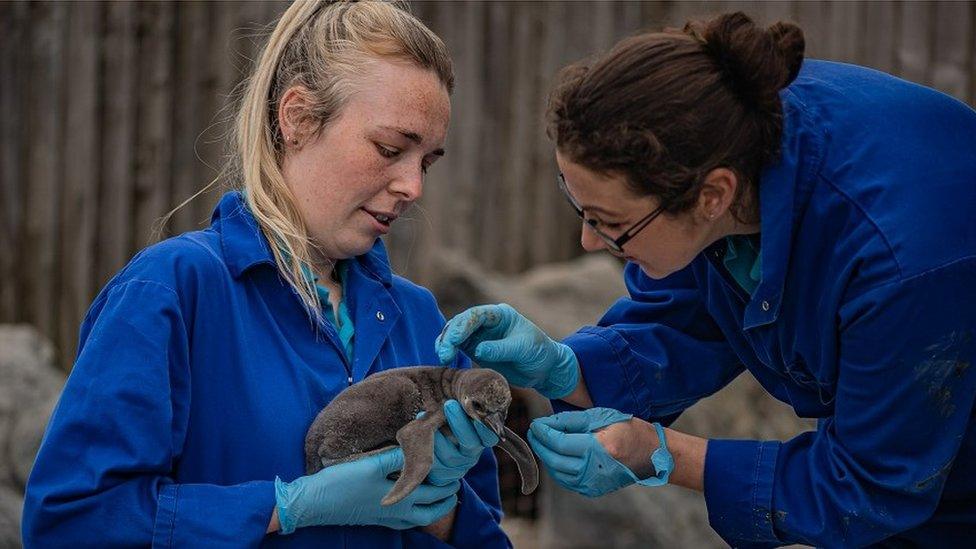
Keepers named the penguin chicks after their favourite fruits
The first to hatch was Plum followed by Peach, Papaya, Cherry, Rhubarb, Satsuma, Lemon, Banana and finally Iona-Berry.
"There's nothing quite like hearing tiny chirps coming from the penguin nests and seeing little balls of fluff snuggled up with their parents just moments after hatching," said Sophie Bissaker, parrots and penguins keeper at Chester Zoo.
"Penguin Island is buzzing with activity."
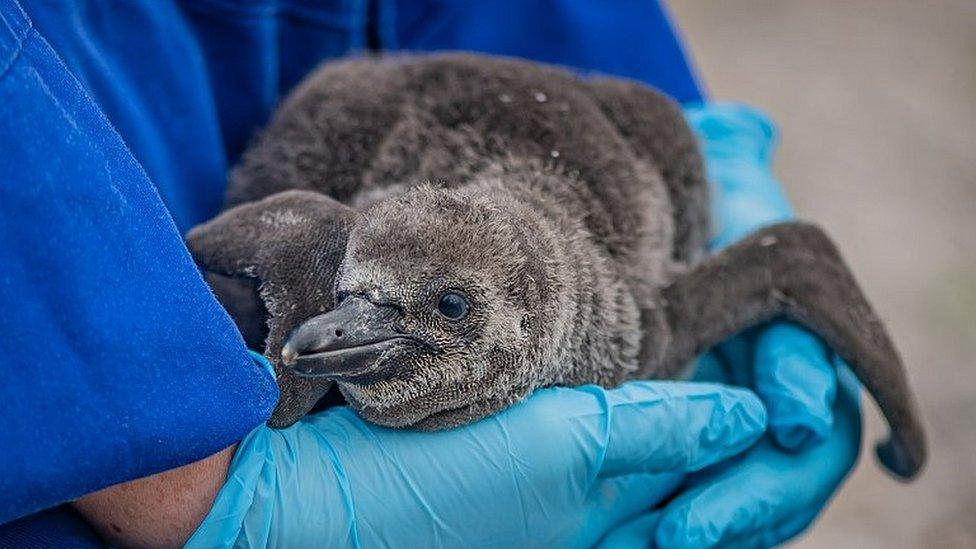
One of the chicks, Iona-Berry, was named after the vet which save the sight of the penguins' father last year
The newly-hatched Humboldt penguins have started swimming in the zoo's pool where they will learn how to catch food for themselves.
Ms Bissaker said: "For the first three months of life, mum and dad keep their new chicks tucked away while they feed and nurture them.
"To help them gain weight while they're so young, we provide the parents with extra fish, which they swallow, churn into a high-protein soup and regurgitate at feeding times.
"In a few weeks they'll shed their fluffy grey feathers to reveal their iconic black and white feathers underneath, which are waterproof and help them zoom through the water."

Why not follow BBC North West on Facebook, external, Twitter, external and Instagram, external? You can also send story ideas to northwest.newsonline@bbc.co.uk
Related topics
- Published23 April 2021
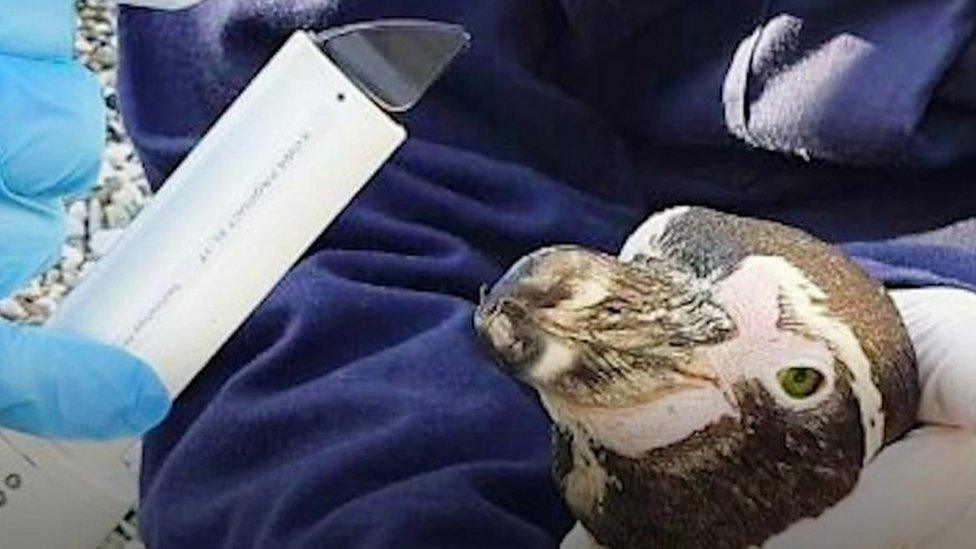
- Published5 July 2022
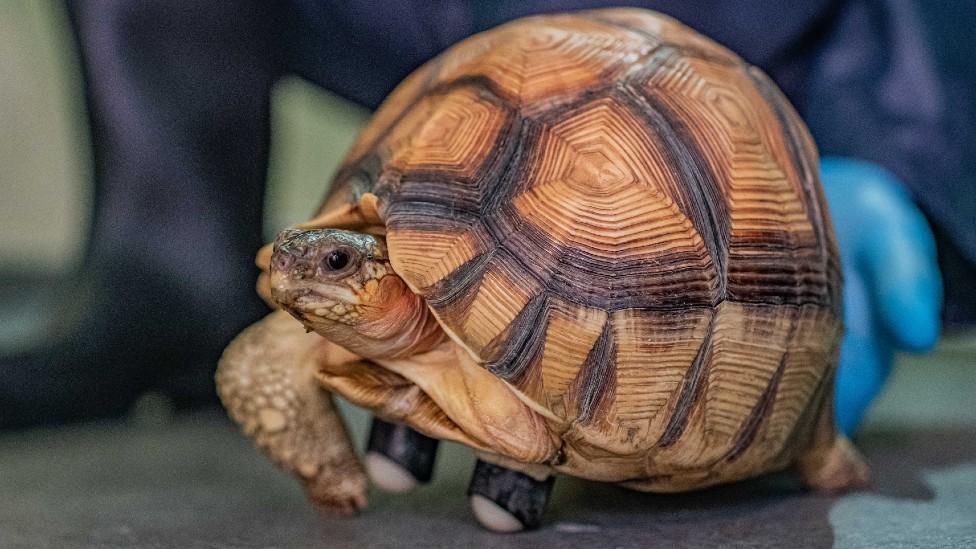
- Published15 April 2022
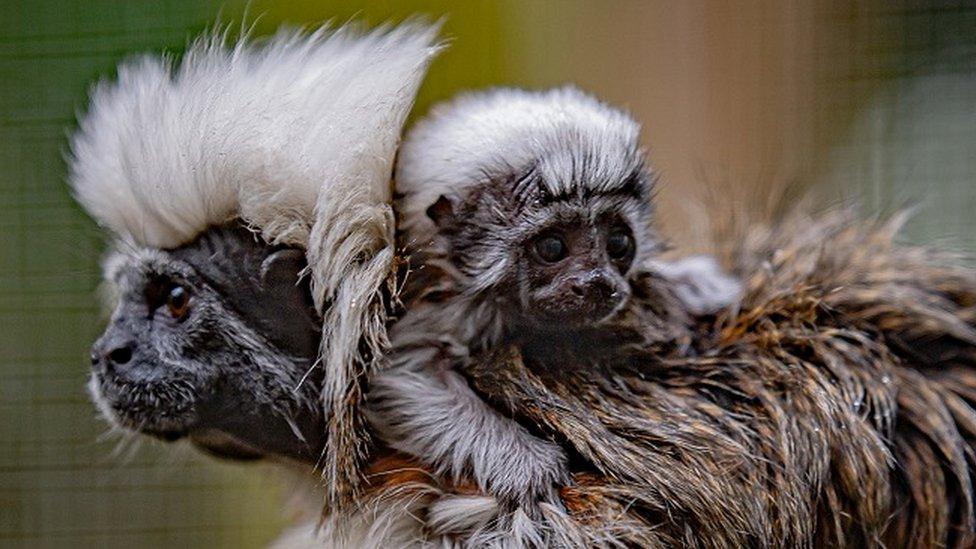
- Published23 March 2022
